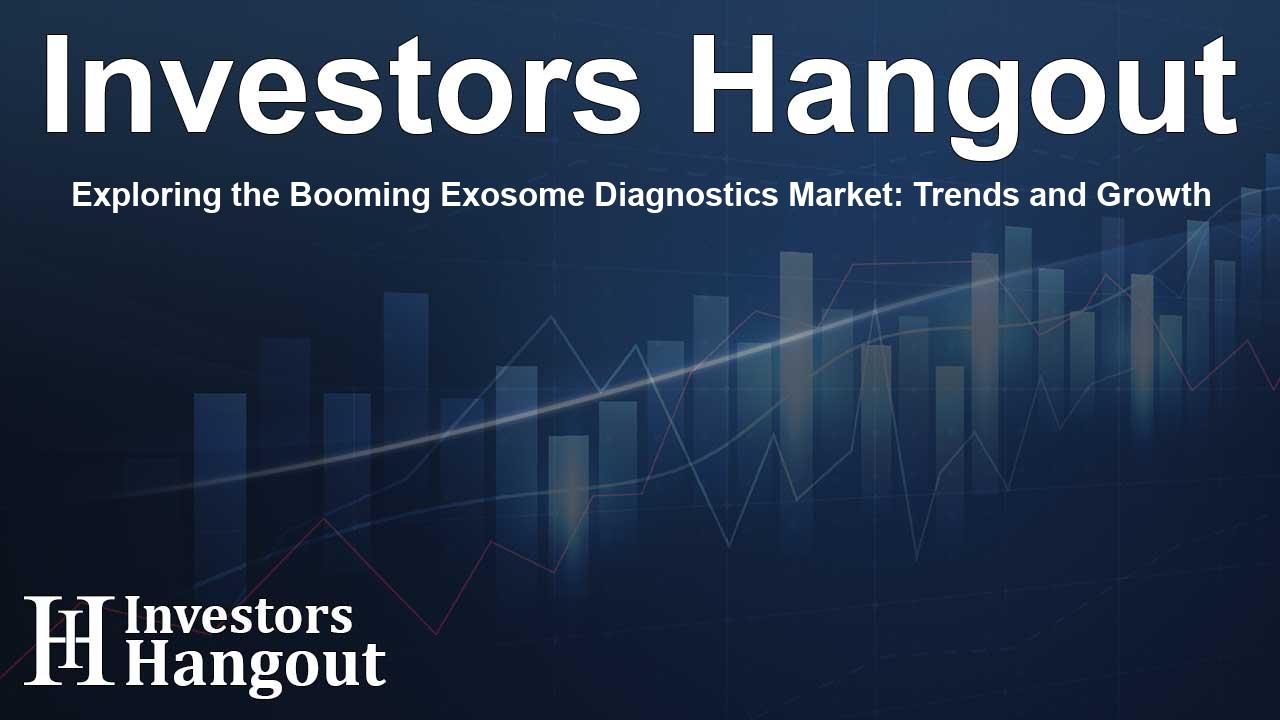Exploring the Booming Exosome Diagnostics Market: Trends and Growth

The Rising Influence of Exosome Diagnostics
As the demand for sophisticated diagnostic tools escalates, exosome diagnostics is stepping into the spotlight, particularly due to the increasing prevalence of cancer. Non-invasive and highly accurate, exosome-based diagnostics are reshaping how medical professionals approach disease identification. These techniques are gaining traction not only in oncology but also in neurology and cardiology, leading to an expanding market reach.
Market Growth and Projections
According to recent analyses, the exosome diagnostics market is poised for remarkable growth over the coming years. The market is projected to flourish with an astonishing compound annual growth rate (CAGR) of approximately 47% through 2032. This surge is attributed to ongoing advancements in isolation and analysis techniques, enhancing both the efficiency and accessibility of these life-saving diagnostics.
Key Insights from Market Reports
North America is expected to lead the global exosome diagnostics market during the forecast period. In fact, it was valued at USD 58 million in 2024 and is anticipated to scale up to USD 1.2 billion by 2032, reflecting a robust CAGR driven by the rising rates of cancer, growing preference for non-invasive testing, and increasing awareness regarding early diagnosis.
Leaders in the Exosome Diagnostics Arena
Several notable companies are at the forefront of the exosome diagnostics market, driving innovation and advancing technologies. Bio-Techne, Lonza, Thermo Fisher Scientific Inc., and others are busy developing solutions that broaden the horizons of this emerging field. Recent collaborations, such as those between NeuroSense and Lonza, are pivotal in creating biomarkers targeting neurodegenerative diseases, showcasing the practical applications of exosome diagnostics.
Innovative Applications
The applications of exosome diagnostics are both diverse and promising. For instance, advancements like exosome-based kidney transplant rejection tests, spearheaded by Bio-Techne, and collaborations aimed at early ovarian cancer detection through exosome isolation technologies are making noteworthy contributions to patient care. The potential for these innovative methods to revolutionize classic diagnostic practices cannot be understated.
The Scientific Backbone of Exosome Technologies
At the heart of exosome diagnostics is the molecular content these nano-sized vesicles carry, including RNA, DNA, and proteins that provide insights into various medical conditions. Their ability to be detected in bodily fluids positions them as a minimally invasive diagnostic alternative, enabling healthcare providers to monitor and identify diseases efficiently.
Challenges and Opportunities
Despite the promising future, the exosome diagnostics sector faces hurdles. One of the significant challenges is the lack of standardization in exosome isolation techniques, which can lead to variability in results. Moreover, regulatory requirements and the need for comprehensive clinical validation present barriers that must be navigated to realize the full potential of exosome-based diagnostics.
Future Directions
Looking ahead, the exosome diagnostics market is expected to see substantial advancements, with increasing investments in R&D and strategic collaborations driving innovation. This newfound focus on personalized medicine—where therapies are tailored to the molecular profiles of individual patients—indicates an exciting trajectory for the field. The enhancement of diagnostic tools to integrate with molecular profiling techniques, such as genomics and proteomics, can further refine disease detection methods.
Frequently Asked Questions
What is the exosome diagnostics market?
The exosome diagnostics market focuses on utilizing exosomes—nano-sized vesicles from cells—as biomarkers for various diseases, primarily in non-invasive testing.
How fast is the exosome diagnostics market expected to grow?
The exosome diagnostics market is projected to experience a CAGR of approximately 47% by 2032, driving significant growth.
Who are the major players in the exosome diagnostics market?
Key companies include Bio-Techne, Lonza, Thermo Fisher Scientific Inc., and other innovators in the field.
What are the benefits of using exosome diagnostics?
Exosome diagnostics provide non-invasive options for early disease detection and monitoring, offering insights that traditional methods may not achieve.
What challenges does the exosome diagnostics market face?
Standardization of techniques, regulatory approval processes, and the need for extensive clinical validation are primary challenges for the market.
About The Author
Contact Dominic Sanders privately here. Or send an email with ATTN: Dominic Sanders as the subject to contact@investorshangout.com.
About Investors Hangout
Investors Hangout is a leading online stock forum for financial discussion and learning, offering a wide range of free tools and resources. It draws in traders of all levels, who exchange market knowledge, investigate trading tactics, and keep an eye on industry developments in real time. Featuring financial articles, stock message boards, quotes, charts, company profiles, and live news updates. Through cooperative learning and a wealth of informational resources, it helps users from novices creating their first portfolios to experts honing their techniques. Join Investors Hangout today: https://investorshangout.com/
The content of this article is based on factual, publicly available information and does not represent legal, financial, or investment advice. Investors Hangout does not offer financial advice, and the author is not a licensed financial advisor. Consult a qualified advisor before making any financial or investment decisions based on this article. This article should not be considered advice to purchase, sell, or hold any securities or other investments. If any of the material provided here is inaccurate, please contact us for corrections.
